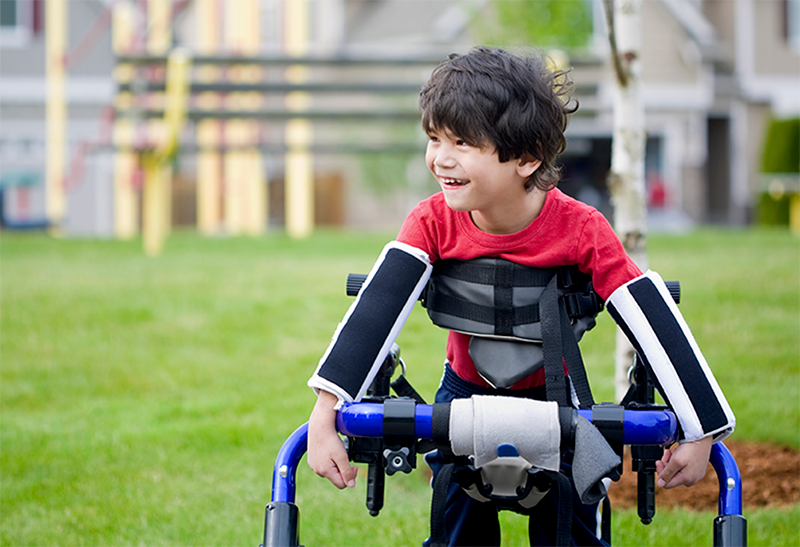What is cerebral palsy?
Cerebral palsy (CP) is a group of disorders that affect a person’s ability to move and maintain balance and posture.
Learn more about cerebral palsy by visiting the CDC website.

Cerebral palsy (CP) is a group of disorders that affect a person’s ability to move and maintain balance and posture.
Learn more about cerebral palsy by visiting the CDC website.

Cerebral palsy is the most common childhood physical disability and occurs in 2-3 per 1000 births. Despite its relatively high frequency, cerebral palsy research funding is lower than that of similar disorders. Improving cerebral palsy prevention, detection and treatment benefits the individual with the disorder and the lives of their caregivers.
Research into cerebral palsy provides new knowledge about:
Disorder prevention
Early detection
Effective medicines
Improvements to surgeries
New therapies
Individuals with cerebral palsy benefit from a fuller understanding of this disorder through better treatments and effective diagnoses.
These costs can be prohibitive for scientists and doctors, unless they receive grant funding. Grant funding typically comes from large organizations such as the Centers for Disease Control and Prevention and the National Institutes of Health.
Costs can include:
Resources to perform experiments
Stipends for researchers
Care costs for research participants
Partnerships with other organizations
To receive this funding, researchers write justifications for why they want to perform certain experiments and explore their area of research. This requires preliminary data that shows their research is likely to produce results.
Many researchers have novel ideas for cerebral palsy research without preliminary data. Without data, these individuals struggle to receive grant funding, and sadly these novel ideas will not make it into hospitals and doctors’ offices.
To get this preliminary data, researchers can sometimes obtain a seed grant. Seed grants are smaller amounts of money provided to researchers with novel ideas so they can obtain data. This early work can then be used to obtain a larger grant.
Seed grants are thus critical to bring new ideas to the front of research. Pedal with Pete provides seed grants of up to $25,000 to researchers with novel ideas on how to prevent, diagnose, or treat cerebral palsy.
Our many donors, riders, walkers, volunteers, and sponsors of the Pedal with Pete Foundation have raised over $1,000,000 in the past 26 years.
Our funds have gone to a variety of research centers around the world, including Nationwide Children’s Hospital in Columbus and the Case Western University in cooperation with the Cleveland Clinic.